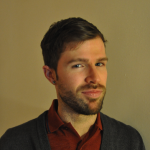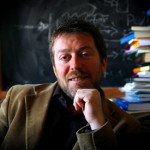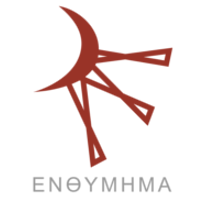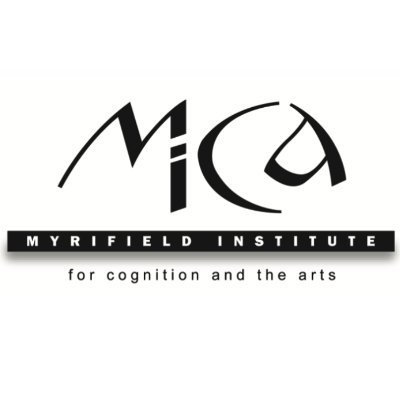International Board
Project directors
Renata Gambino, Dr. phil., is professor for German Studies of the Department of Humanities at the University Catania. She has also taught at the Palermo University and at the Cosenza University. Focus of research: German literature of the ‘Goethezeit’, Neurocognitive Hermeneutics, gender studies, visual studies, cultural studies, intermediality, literary antropology, german travelers in Italy. She has given lectures and seminars on her main research fields at Italian as well as foreign universities. Is coordinator of a section of the Jean Monnet Module of the Catania University titled New Skills for new Challenges (2009-2013). She is staff member of the Internationalization Cometee of the Humanistic Faculty of Catania. Erasmus Partner with the Bochum University (Germany) and the Warschaw University (Poland). Main research topics: German literature of the ‘Goethezeit’ and of the Romanticism (Karl Philip Moritz, Friedrich de la Motte Fouquè), German travellers (Philipp Joseph von Rehfues, Kurt Schwitters), gender questions in the romantic literature (Elise Sommer, Sophie Bernhardi, Charlotte von Ahlefeld, Luise Hensel). invited stays and visiting professorships: Bochum University. Since 2005 co-Editor of the Book Series “Wunderkammer”, Bonanno Editore, Acireale-Roma. Cooperative member of several international associations: GSNA Goethe Society of North America IVG Internationales Verein der Germanisten AIG Associazione Italiana Germanisti NEMLA Northeast Modern Language Association Publications in recent years (a selection): Italienerfahrung und Antikenrezeption bei Karl Philipp Moritz, in Veit Rosemberger (ed. by), Die Ideale der Alten. Antikenrezeption um 1800, Franz Steiner Verlag, Stuttgart, 2008, pp. 29-38; Arcipelaghi culturali: le donne nella letteratura tedesca tra settecento e ottocento, in. «BAIG» I, suppl. giugno 2008; Meraviglie della visione. Una fiaba di Friedrich de la Motte Fouquè, in Valeria Cammarata (ed. by), La finestra del testo. Letteratura e dispositivi della visione tra Settecento e Novecento, Meltemi, Roma, 2008, pp. 165-186; Auf dem Weg zum “Mittelpunkt des Schönen”. Das pädagogische Konzept von Karl Philipp Moritz’ italienischer Reisebeschreibung. In: KRUPP, ANTHONY A CURA DI. Karl Philipp Moritz. Signaturen des Denkens. vol. 77, p. 255-276, AMSTERDAM/NEW YORK, NEW YORK:rodopi 2010; Vedute e Visioni. Teorie estiche e dimensione onirica nelle opere “italiane” di Karl Philipp Moritz, Bruno Mondadori, Milano, 2010.
Grazia Pulvirenti, Dr. phil., is full professor for German Studies at the Department of Humanities (University of Catania). Director of the NewHums Research Center. Project Leader of the Neuro Humanities Research Group (www.neurohumanitiestudies.eu). She was Coordinator of the PhD Course in Cultural Heritage at the University of Catania. She is President of the Lamberto Puggelli Foundation, and founder and editor of the German Book Series “Wunderkammer” (since 2005); She is memeber of the Scientific Cometee of the journals “Cognitive Philology”, “Osservatorio critico della germanistica”, “Critica letteraria e linguistica”, “Mitteleuropa. Identità letterarie” and “L’Albatros” (Algra). She has given lectures and seminars on her main research fields at Italian as well as foreign universities. She is member of the Goethe Society of North America, of the MLA, IVG, AIG, Italian Society for the 18th Century Studies.
She has recently published Storie menti mondi. Approccio Neuroermeneutico alla Letteratura (Mimesis, 2018) and La mente narrativa di Heinrich von Kleist (Mimesis, 2018) with professor Renata Gambino.
With professor Renata Gambino, she also recently had an article published on the prestigious neuroscience journal Frontiers: ““The boundless Realm where all Form lies”. Representing Imagination at the Crossway between literary and neurocognitive Studies” (2020).
OTHER MEMBERS OF THE INTERNATIONAL BOARD
Liliana Albertazzi is Principal Investigator at CIMeC (Center for Mind/Brain Sciences) and Professor of Aesthetics and Philosophy of Language at the Department of Humanities of the University of Trento, where she is also head of the Experimental Phenomenology Laboratory. Her current works are mainly in the fields of crossmodality and experimental aesthetics. She is the author of five books, and more that 150 publications in academic journals (Axiomathes, Perception, i-Perception, Perception & Motor Skills, Journal of Experimental Psychology: Human Perception and Performance, Frontiers in Psychology, Art & Perception, Journal of Consciousness Studies, Seeing and Perceiving, Psychologia, etc.). She also edited 22 books with different publishing houses, including MIT Press, Springer, Benjamins, Ashgate, and Wiley-Blackwell. Albertazzi is also editor of the Handbook of Experimental Phenomenology: Visual Perception of Shape, Space and Appearance (Wiley). The list of her recent publications in aesthetics and language includes: Calligraphy and Klee’s Abstract Painting, Art & Perception 2015; Cross-modal associations between materic painting and classical Spanish music,Frontiers in Psychology 2015; Philosophical background: Phenomenology, in Handbook or Perceptual Organization, OUP 2015; Spatial elements in visual awareness, Philosophia Scientiae 2015; The semantics of biological forms, Perception 2014; The hue of angles: Was Kandinsky right?, Art & Perception 2014; The hue of concepts, Perception 2013; The hue of shapes, Experimental Psychology: Human Perception and Performance 2012; The perceptual roots of metaphor, in L. Albertazzi et al. es., Perception beyond Inference, MIT press 2010.
http://www.lilianaalbertazzi.com/
Alexander Bergs joined the Institute for English and American Studies of the University of Osnabrück, Germany, in 2006 when he became Full Professor and Chair of English Language and Linguistics. His research interests include, among others, language variation and change, constructional approaches to language, the role of context in language, the syntax/pragmatics interface and cognitive poetics. His works include several authored and edited books (Social Networks and Historical Sociolinguistics, Modern Scots, Contexts and Constructions, Constructions and Language Change), a short textbook on Synchronic English Linguistics, one on Understanding Language Change (with Kate Burridge) and the two-volume Handbook of English Historical Linguistics (ed. with Laurel Brinton; now available as 5 volume paperback) as well as more than fifty papers in high profile international journals and edited volumes. For details, click Publications. Alexander Bergs has taught at the Universities of Düsseldorf, Bonn, Santiago de Compostela, Wisconsin-Milwaukee, Catania, Vigo and Thessaloniki and has organized numerous international workshops and conferences. For details, click Teaching. Apart from several terms as Director of the Institute of English and American Studies, as Dean of the Faculty of Linguistics and Literatures, and as member of the University Senate, he is one of the founders and directors of the Research Cluster for Cognition and Poetics at the University of Osnabrück.
https://www.alexanderbergs.de/
Silvia Bonacchi, Dr. phil. Habil., is assistant professor for Linguistics and Cultural Studies at the Department of Applied Linguistics, Institute for Anthropocentrical Linguistics and Cultural Studies at the University of Warsaw. She is also a member of international associations and research groups (Association of Polis Germanistists, International Society for Research on Robert Musil, International Association for Germanistics, Polish Association for Applied Linguistics, Gestalt Theory Association, AIG). She is redactor and member of the Advisory Board of interdisciplinar reviews (Kwartalnik Filologiczny, Gestalt Theory, Komunikacja specjalistyczna) and member of the jury for the Metzger-Price. The focus of her research concerns both cultural studies as intercultural communication. She has published articles on the following areas: German literature and culture, interdiscursive processes, cultural studies, cultural pragmatics, intercultural communication, cultural transfer, didactics of culture, culturological comparative studies (German, Italian, Polish), dialogue research.
Jan Söffner is full Professor and Vice President for Teaching Affairs at Zeppelin University. He has been Chief Editor at the academic publisher Wilhelm Fink, Paderborn and Teacher of German Language for immigrants and refugees for Euro-Schulen/Primus Rheinland. Teaching experience: Commedia dell’Arte, the Poetics of Money in French Literature, Food and Culture and Responsibility, Politics of Simplicity and Crises of Reality, Myth in Italian Post-War literature, Life writing (team-taught with Günter Blamberger), Embodiment [nominated for the Best Teaching Award at Zeppelin University] and Mind/Machine [taught in English]. He dedicated to mid-tier courses on André Gide, Gustave Flaubert, Surrealism, Dadaism, Symbolism, Alfred Jarry, Drugs in Literature, Fascism, Pier Paolo Pasolini, French Poetry, Inspiration, ‘Understanding’ and ‘Knowing’ in French Language and Literature, Money in German Literature, Boccaccio, Cultural History: Myths, Narration and Democracy, Realism [nominated for the Best Teaching Award at Zeppelin University], Cultural History: Competitions [nominated for the Best Teaching Award at Zeppelin University]. Contributions: Nachdenken über Game of Thrones. George R.R. Martins A Song of Ice and Fire,Wilhelm Fink, Paderborn 2017. Partizipation. Metapher, Mimesis, Musik – und die Kunst, Texte bewohnbar zu machen . Munich: Fink 2014. Metaphern und Morphomata. Munich: Fink (Series Morphomata) 2015. Das Decameron und seine Rahmen des Unlesbaren. Heidelberg: Winter, 2005. Italian Theory (with Antonio Lucci und Esther Schomacher), Merve, Berlin (forthcoming in 2019). Krisen der Realität (with Karen van den Berg), Special issue of theBerliner Debatte Initial (forthcoming in 2019).Stimmungen des Todes und ihreBestimmung (with Gerardo Scheige und Eva-Maria Tönnies). Munich: Fink (Series Morphomata), 2015. Sind alle Denker Traurig?(with Günter Blamberger, Sidonie Kellerer und Tanja Klemm). Munich: Fink (Series Morphomata), 2015.Synaesthesia and Kinaesthetics [habitus in habitat III] (with Sabine Flach and Jörg Fingerhut). Natur, Wissenschaft und die Künste/Nature, Science and the Arts/Nature, Science et les Arts 6. Bern et al.: Peter Lang, 2011.Other Sides of Cognition [habitus in habitat II] (with Sabine Flach). Natur, Wissenschaft und die Künste/Nature, Science and the Arts/Nature, Science et les Arts 4. Bern et al.: Peter Lang, 2010. Emotion and Motion [habitus in habitat I] (with Sabine Flach and Daniel Margulies). Natur, Wissenschaft und die Künste/Nature, Science and the Arts/Nature, Science et les Arts 3. Bern et al.: Peter Lang, 201.
http://zeppelin-university.academia.edu/JanS%C3%B6ffner/CurriculumVitae
Michael Burke is Professor of Rhetoric (linguistics) at UCRA, Utrecht University, The Netherlands, where he is the head of department. He is also the chair of the International Poetics and Linguistics Association (PALA), the Secretary of the Rhetoric Society of Europe and is a Routledge Linguistics Series Editor (in rhetoric and stylistics). He is best known for his research monograph Literary Reading Cognition and Emotion: An Exploration of the Oceanic Mind (2011). He has also published widely on pedagogy, rhetoric and stylistics in diverse journals including Language and Literature, Style, The European Journal of English Studies and Foundations of Science. Publications relevant to the field of neuro-humanities include: “Cognitive Stylistics: History, Development and Current Applications” Journal of Foreign Languages. Vol. 33/1, 2010, pp. 40-46. ’Progress is a comfortable disease: Cognition in a stylistic analysis of e.e.cummings’, M. Lambrou, and P. Stockwell, Contemporary Stylistics. London: Continuum, 2007. ‘Cognitive Stylistics’ in Encyclopaedia of Language and Linguistics (2nd Edition), ed. Keith Brown Amsterdam, Elsevier, 2006, pp. 218-221. ‘Emotion in stylistics’ in: Encyclopaedia of Language and Linguistics (2nd Edition), ed. Keith Brown Amsterdam, Elsevier, 2006, pp. 127-129. ‘How Cognition Can Augment Stylistic Analysis’. The European Journal of English Studies, Vol. 9.2 (August 2005), pp. 185-96. ‘Cognitive Stylistics in the Classroom: A Pedagogical Account’, in: Style (39):1, 2004. pp. 491-510. ‘Literature as Parable’, in: Cognitive Poetics in Practice (eds. J. Gavins and G. Steen), London: Routledge, 2003, pp. 115-128.
http://www.roac.nl/roac/acc-dept.phtml?st=burke
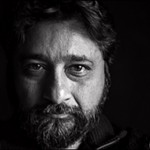
Anjan Chatterjee is a Professor of Neurology, and a member of the Center for Cognitive Neuroscience, and the Center for Neuroscience and Society at the University of Pennsylvania. He received his BA in Philosophy from Haverford College. His clinical practice focuses on patients with cognitive disorders. His research focuses on spatial cognition and language, attention, and aesthetics using neuropsychological and functional neuroimaging methods. He also writes about neuroethics. He has two forthcoming books: Neuroethics in Practice, and The Aesthetic Brain, both to be published by Oxford University Press. He is on the editorial boards of: Cognitive Neuropsychology, Cognitive and Behavioral Neurology, Behavioural Neurology, Neuropsychology, Journal of Cognitive Neuroscience, Journal of the International Neuropsychological Society, European Neurology, Empirical Studies of the Arts and Policy Studies in Ethics, Law and Technology. He was awarded the 2002 Norman Geschwind Prize in Behavioral and Cognitive Neurology by the American Academy of Neurology. He is a founding member of the Board of Governors of the Neuroethics Society, the President of the International Association of Empirical Aesthetics, and the President-elect of the Behavioral and Cognitive Neurology Society. He is on the Board of Mangers of Haverford College.
http://ccn.upenn.edu/chatterjee/
http://ccn.upenn.edu/~chatterjee/chat_lab.html
Vittorio Gallese is Full Professor of Physiology at the Department of Neuroscience (University of Parma), Adjunct Senior Research Scholar at the Dept. of Art History and Archeology (Columbia University) and Director of the Doctoral School of Medicine of the University of Parma. Since the beginning his research activity has been focused on the relationship between the sensory-motor system and cognition in non-human primates and humans. In more recent years Vittorio Gallese broadened his research interests to the field of cognitive science, investigating the neurobiological basis of intersubjectivity, empathy, language, theory of mind and aesthetics. He also applies neuroscientific methods to study Autism and Schizophrenia. Since many years he is involved in fruitful multidisciplinary collaborations with scholars of other disciplines, like philosophy of mind (collaborating with Alvin Goldman, Thomas Metzinger and Corrado Sinigaglia), cognitive linguistics (collaborating with George Lakoff and Art Glenberg), aesthetics (collaborating with David Freedberg), psychiatry and psychoanalysis (collaborating with Morris Eagle, Paolo Migone, Thomas Fuchs, and Josef Parnas) and narratology (collaborating with Hannah Wojchiehowski). The major scientific contribution of Vittorio Gallese consisted of the discovery of mirror neurons, together with his colleagues of Parma, and of the development of a unified model of basic aspects of intersubjectivity: Embodied Simulation Theory. Vittorio Gallese’s scientific activity is testified by more than 160 scientific publications in peer-reviewed international scientific journals and international scientific edited books.
https://personale.unipr.it/it/ugovdocenti/person/18110
Visit his Lab of Social Cognitive Neuroscience
Benito Elías García Valero finished his degree on Spanish Philology in 2008 at the University of Alicante. He got a Postgraduate in Literary Studies in 2010, and his PhD. with honours on Comparative Literature in 2015. He has completed research stages in the University of Sheffield (2011), the University of Osaka (2014), the NewHums Research Centre at the Università Degli Studi di Catania (2018) and the Laboratory of Neurobiology at University College London (2021). His main research applies compartist methodologies to study the relations between literature and science, especially cognitive poetics and neuroesthetics. He started to work at the University of Alicante in 2014, and he is currently a lecturer in the department of Spanish Philology, General Linguistics and Theory of Literature.
https://cvnet.cpd.ua.es/curriculum-breve/es/garcia-valero-benito-elias/18849
A scholar of “long 19th century” French and Caribbean literature and culture, I also work in the fields of cognitive literary studies and health humanities. Monographs, edited volumes, editions, and translations include: Beyond the Slave Narrative: Politics, Sex, and Manuscripts in the Haitian Revolution ; Trauma and Its Representations: The Social Life of Mimesis in Post-Revolutionary France; Poetry of Haitian Independence (with D. Kadish and N. Shapiro); Unconscious Dominions: Psychoanalysis, Colonial Trauma, and Global Sovereignty (with W. Anderson and R. Keller); Sarah, A Colonial Novella (with D. Kadish); and “Coming to Writing” and Other Essays by Hélène Cixous . Monographs underway are Essays on Mimesis: From Marx to Mirror Neurons, and Phenomenological Courage: Afro-Caribbean Literary Challenges to the Epistemic Brain in Naturalist Modernity . I have previously served as director of the Franklin Humanities Institute and the Center for Latin American and Caribbean Studies, and as co-director of the Brain & Society theme of Bass Connections, as well as founding co-director of the Health Humanities Lab. I co-convene the Neurohumanities Research Group. Current courses are Contemporary African Philosophy with Felwine Sarr, and Pandemic Humanities. Forthcoming articles are in the Cahiers Marceline Desbordes-Valmore (2020) and Epilepsy and Behavior (2020).
https://scholars.duke.edu/person/deborah.jenson
Maria Teresa Giaveri is Full Professor of Comparative Literature in the Università di Torino, Vice-President of “Associazione di Studi di Teoria e Storia Comparata delle Letterature” (Italian section of ICLA) and of “Centro Studi ed Edizioni dei Testi” (Napoli). She is editor of several series of literary criticism (“Melusina”, ETS; “Al buon Corsiero” and “Imago Mundi”, Diabasis; “Castelli di Carta” Mesogea). She has published over one hundred contributions on Paul Valéry and Symbolist literature and on problems and methods of genetic criticism.
She published many essays in the field of genetic criticism. She has also done research work on relationship between literature and the arts and between different national literatures, namely: Borges e Dante (in AA. VV., Lectura Dantis, Edizioni dell’Università “l’Orientale”, 2001); Il viso, il naso: fra Marcel Proust e Murasaki Shikibu (in AA. VV., La scrittura e il volto,Napoli, Liguori 2006). She has, moreover, developed a method for the teaching of italian language at various levels. She is a translator and a research person in translation criticism.
She is a member of Conseil Scientifique de l’Université de Paris X Nanterre and in the board of scientific review as ”Genesis”, “Recto/Verso” (Paris CNRS) and “Between”(ICLA). In 2011 she was in the team of the ten Italian representative “Trans-Siberian authors” ( see www.transiberiana.ru)
Patrick Colm Hogan is a Professor in the Department of English at the University of Connecticut, where he is also on the faculty of the Program in Cognitive Science, the Program in Comparative Literature and Cultural Studies, and the Program in India Studies. He is the author of sixteen books, including The Mind and Its Stories: Narrative Universals and Human Emotion (Cambridge University Press, 2003), hailed by Steven Pinker as “a landmark in modern intellectual life,” and What Literature Teaches Us About Emotion (Cambridge University Press, 2011). His most recent books are How Authors’ Minds Make Stories (Cambridge University Press, 2013) and Narrative Discourse: Authors and Narrators in Literature, Film, and Art (Ohio State University Press, 2013). Forthcoming work includes Conversations on Cognitive Cultural Studies, a book of conversations with Frederick Aldama. Hogan has also edited or co-edited four books, including The Cambridge Encyclopedia of the Language Sciences (Cambridge University Press, 2011), and authored over 150 articles, many treating literature and psychology.
http://english.uconn.edu/directory/faculty.php?id=35

Marco Iacoboni is Professor of Psychiatry and Biobehavioral Sciences and Director of the Transcranial Magnetic Stimulation Lab at the Ahmanson-Lovelace Brain Mapping Center of the David Geffen School of Medicine at UCLA. Iacoboni pioneered the research on mirror neurons, the “smart cells” in our brain that allow us to understand others. His research has been covered by the New York Times, Los Angeles Times, Wall Street Journal, Newsweek, Time, The Economist, and major TV networks. Marco Iacoboni’s new book on mirror neurons is entitled Mirroring People: The New Science of How We Connect with Others (Farrar, Straus, & Giroux, 2008).
http://iacoboni.bol.ucla.edu/

Albert Meier is full professor of German Literature and Media at the Christian- Alberchts University of Kiel. He is also member of the following institutes: Academy of Science (Hamburg), Research Centre for European Classicism (Weimar) and Goethe-Gesellschaft (Weimar), where he is also member of the Board of Directors. His main research interests include poetics and aesthetics, the relation between classicism and romanticism, the logic of the prose, the Pop-Culture and the relations between German and Italian literatures. Currently his work is focusing on the literature as “art in words” and, in the foreground, on the poetic tendencies in 19th and 20th centuries.
(† 2021) Prof. David S. Miall Full Professor of the Department of English and Film Studies University of Alberta, Edmonton, Canada Courses taught in British Romantic Literature, Gothic Fiction, Nineteenth-Century Novel, The Short Story, Hypertext Theory, Humanities Computing, Bibliography and Research Methods, History of Reading, Empirical Studies of Literary Reading, Cognitive Poetics, and introductory English courses. Currently he is working on a book-length manuscript co-authored with Don Kuiken, tentatively entitled A Feeling for Reading. With Don Kuiken (Psychology) I help direct a weekly lab meeting that includes several graduate students, in which we focus on our empirical and theoretical studies of reading. This has also been joined at various times by scholars and graduate students from Brazil, China, Poland, Finland, Tunisia, Denmark, and Holland.
http://www.ualberta.ca/~dmiall/
http://www.efs.ualberta.ca/en/People/Faculty/DavidMiall.aspx
M. Pierre-Louis Patoine
Études anglophones Sorbonne-Nouvelle University (Paris III) since 2012.
He is the author of a succesful book on the role of the physiological, sensori-motor body in the experience of literary fiction (Presses de l’ENS Lyon). He has published articles on contemporary American literature, biosemiotics and literary neuroaesthetics. He is co-director of the [Science+Literature] lab at Paris III (http://litorg.hypotheses.org) and member of the editorial team of the online journal Épistémocritique (http://www.epistemocritique.org). His current research investigates the neuroscience of immersion and the alteration of states of consciousness during videogaming and reading.
http://www.univ-paris3.fr/m-patoine-pierre-louis-192767.kjsp
Prof. Corrado Sinigaglia Associate Professor of Logic and Philosophy of Science at University of Milan.
He is professor of philosophy of science at University of Milan. He has been at University of Milan since 2001 when he was appointed a researcher there. Before that he studied at the Husserl-Archives of Leuven, at the Ecole Normale Superiéure, and at the University of Genova, where he obtained my PhD in philosophy of science.
His current work is mostly in the neuroscience, phenomenology, and philosophy of mind. He is interested in the enactive roots of social cognition, and he has proposed a motor approach to intentionality.
http://dipartimento.filosofia.unimi.it/index.php/corrado-sinigaglia
http://www.filosofia.unimi.it/sinigaglia/Home.html
Gerard Steen is Professor of Language and Communication at the Department of Dutch Studies, Faculty of Humanities, University of Amsterdam. He is the founding director of the Metaphor Lab Amsterdam <http://metaphorlab.org/>, an international expertise center for interdisciplinary and multidisciplinary research on metaphor in language, cognition and communication. He is a member of the Amsterdam Center for Language and Communication, ACLC <http://aclc.uva.nl/>, at the University of Amsterdam, and of the Network Institute <http://www.networkinstitute.nl/> at VU University Amsterdam.
Steen’s research interests have focused on metaphor and its use in a wide variety of discourse contexts modeled via the notion of genre. Currently, Steen and colleagues are working on building an interdisciplinary metaphor processing model that will combine approaches from the fields of linguistics (structural-functional grammar, cognitive linguistics, relevance theory), psychology (neuro science, psycholinguistics, cognitive psychology, social psychology) and the social sciences (communication science). Embedded in a more comprehensive approach to all language and communication, as based on genre knowledge and genre acts, the model will be used to investigate structures and processes of metaphorical meaning in their situated context of use and to tap the resulting knowledge for practical applications in language and communication – such as text design and editing.
Steen’s main contributions include the development of a three-dimensional model for metaphor and a related procedure for metaphor identification as well as the development of an annotated corpus for metaphor in natural language use <http://metaphorlab.org/metaphor-corpus/> as well as a corpus of visual and multimodal metaphor <http://metaphorlab.org/vismet-corpus/>. He has published 17 monographs, edited volumes and special issues of scholarly journals, and over a 100 articles and book chapters. He is currently working on three edited volumes: The Routledge Handbook of Pragmatics, co-edited with Anne Barron and Gu Yueguo; Genre in Language, Discourse and Cognition, co-edited with Ninke Stukker and Wilbert Spooren; and Visual Metaphor: How Images Construct Metaphor. Parts of his work have been translated into Japanese, Chinese, Arabic and Brazilian Portuguese. He serves on the editorial board of 10 journals and book series. In 2004 he was awarded the prestigious Dutch Science Foundation NWO Iris Vici grant for his program ‘Metaphor in discourse.’ He previously held chairs in Language Use and Cognition (2007-2013) and in Language and Communication (2013-2014) at VU University Amsterdam.
Peter Stockwell is a professor of Literary Linguistics at the University of Notthingham. He is also a Fellow of the English Association since 2011. He wrote over 70 articles and chapter between 1990 and 2012 and published: Subjectivity and Literature from the Romantics to the Present Day: Creating the Self (edited with Philip Shaw), London: Pinter (1991). Impossibility Fiction: Alternativity, Speculation, Extrapolation (edited with Derek Littlewood), Amsterdam/Atlanta: Rodopi (1996). Investigating English Language: The Nature and Functions of Language (with Howard Jackson), Cheltenham: Stanley Thornes (1996, second edition 2011). The Poetics of Science Fiction, London: Longman (2000). Contextualized Stylistics (edited with Michael Burke and Tony Bex), Amsterdam/Atlanta: Rodopi (2000). Routledge English Language Introductions (General series editor, 2001 onwards): 15 volumes. Sociolinguistics, London: Routledge (2002, second edition 2007). Cognitive Poetics, London: Routledge (2002). Poetics: Linguistics, History: Discourses of War and Conflict (ed. with Annette Combrink, Ina Biermann and Martin Wynne), Oxford: Humanities Computing Unit, Oxford University (2002). Language in Theory (with Mark Robson), London: Routledge (2005). Cognitive Poetics (Japanese translation by Shigeko Uchida), Tokyo: Tuttle-Mori Agency (2006). Poetyka Kognitywna: Wprowadzenie (Polish translation of Cognitive Poetics by Edyta Podolska-Frej), Kraków: Towarzystwo Autorów i Wydawców Prac Naukowych Universitas (2006). The Routledge Companion to Sociolinguistics (edited with Carmen Llamas and Louise Mullany), London: Routledge (2007). Key Concepts in Language and Linguistics (revised 3rd edition), London: Routledge (2007). Contemporary Stylistics (edited with Marina Lambrou), London: Continuum (2007). The Language and Literature Reader (edited with Ron Carter), London: Routledge (2008). Texture: Towards a Cognitive Aesthetics of Reading, Edinburgh: Edinburgh University Press (2009). Introducing English Language (with Louise Mullany), London: Routledge (2009). The Handbook of Stylistics (edited with Sara Whiteley), Cambridge: Cambridge University Press (2013).
Mark Turner is Institute Professor and Professor of Cognitive Science at Case Western Reserve University. He is the founding director of the Cognitive Science Network. Many of his papers are available on his author page on the Cognitive Science Network.
He is Founding Director of the Cognitive Science Network; Founding President of the Myrifield Institute for Cognition and the Arts; Fellow of the Institute for Advanced Study, the Center for Advanced Study in the Behavioral Sciences, the National Humanities Center, the John Simon Guggenheim Memorial Foundation, the Institute of Advanced Study at Durham University, the New England Institute for Cognitive Science and Evolutionary Psychology, the National Endowment for the Humanities, and the Institute for the Science of Origins; Extraordinary Member of the Humanwissenschaftliches Zentrum der Ludwig-Maximilians-Universität; External Research Professor of the Krasnow Institute for Advanced Study. For 2011-2012, he is a fellow of the Centre for Advanced Study at the Norwegian Academy of Science and Letters.
http://www.ssrn.com/csn/index.html
Arnaldo Benini (Ravenna, 1938), is full professor of neurosurgery and neurology at University of Zurich. He was head physician at Schulthess Foundation in Zurich. Benini published essays on Mieczyslaw Minkowski, Vesalio, physiology of Cartesio, Italian physician D. Cotugno and Oliver Sacks. He edited the Italian editions of two books by K. R. Popper and wrote essays about euthanisia and ethical problems of genetics. His research interests concern Benedetto Croce, Thomas Mann, Jacob Wassermann and the Jewish question in Germany after the Second World War. He translated Wassermann’s autobiography.
Sigrid Weigel is Director of the Center for Literary and Cultural Research in Berlin and full Professor Professor at the Institute of Literature of the Technical University Berlin. She is also member of Academia Europaea and Honorary Member of the Modern Language Association. She direct different projects, namely: Figurationen des Märtyrers, Gesicht als Artefakt,Kulturelle Semantik Georgiens, SchädelBasisWissen,Susan Taubes- Edition and Zeugenschaft.
http://www.zfl-berlin.org/leitung-detail/items/weigel.html
Hannah C. Wojciehowski is an early modernist and literary theorist who specializes in the history of subjectivity. She is currently Professor of English at the University of Texas and an Affiliate of the Program in Comparative Literature. She is currently working in the emergent field of neurocriticism, studying the phenomena of consciousness, memory, emotion, and cognition as they apply to literature and culture. In 2010-2011, she collaborated witItalian neuroscientist Vittorio Gallese to develop a theory of embodied simulation in literary narratives. They are currently collaborating on a longer study of embodied simulation.
Other research interests include the history of gender and sexuality, early modern women’s writing, Tudor and Jacobean theater, travel narratives and 16th-century colonialism, the impact of science and technology on literature, and vice versa, the history and practice of literary criticism and theory, and the writings of French philosopher Michel Foucault.
http://www.utexas.edu/cola/depts/english/faculty/dolora
Semir Zeki is a British and French neurobiologist who has specialised in studying the primate visual brain and more recently the neural correlates of affective states, such as the experience of love, desire and beauty that are generated by sensory inputs within the field of neuroesthetics. He was educated at University College London (UCL) where he was Henry Head Research Fellow of the Royal Society before being appointed Professor of Neurobiology. Since 2008 he has been Professor of Neuroesthetics at UCL.















